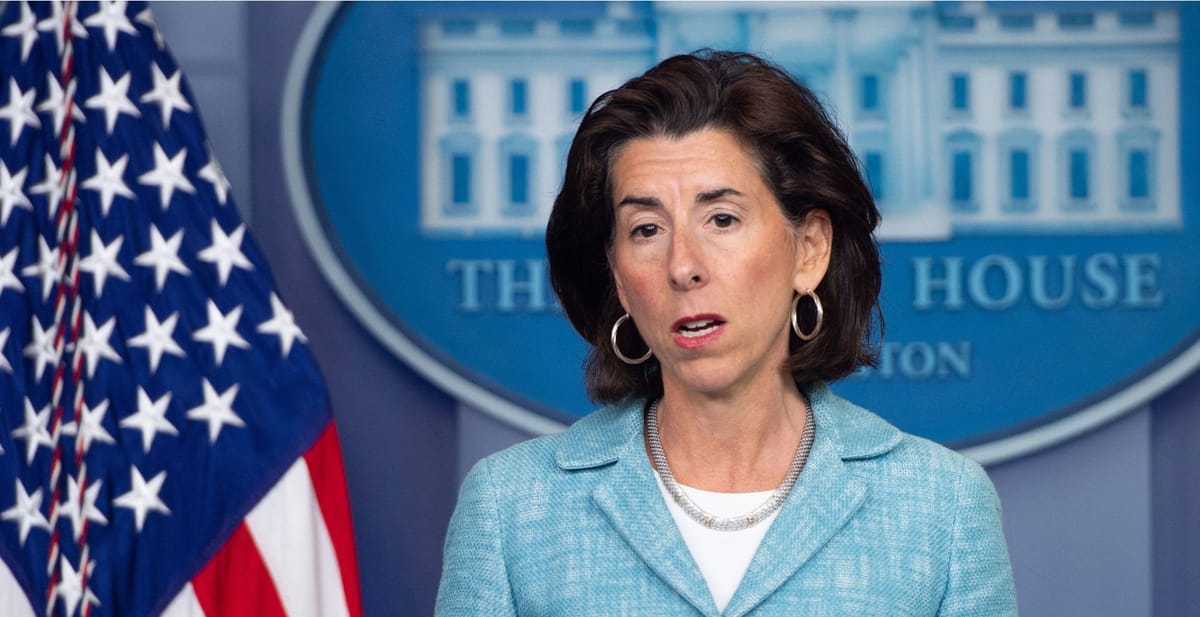Anthropic has publicly endorsed the U.S. Department of Commerce’s “Framework for Artificial Intelligence Diffusion,” commonly known as the AI Diffusion Rule, which imposes export controls on advanced AI chips.
Key Points:
- Anthropic "strongly supports" the US AI Diffusion Framework while proposing three specific refinements to strengthen its effectiveness
- The company warns that China's aggressive chip stockpiling ahead of the May 15 implementation deadline underscores the urgency of export controls
- CEO Dario Amodei has consistently advocated for robust export restrictions, citing Chinese AI firm DeepSeek's progress as evidence controls are working
The company shared a blog post on Wednesday, just two weeks before the framework's May 15 implementation deadline, emphasizing that maintaining America's compute advantage is essential for both national security and economic prosperity. The stance reinforces CEO Dario Amodei's consistent advocacy for robust export restrictions on advanced semiconductors.
"The first Trump Administration correctly diagnosed that AI will be central to strategic competition with China, and that the United States can and should use export controls to maintain and strengthen its AI leadership," Anthropic stated in its official recommendations The company points to Chinese AI labs like DeepSeek as evidence that strong export controls are crucial, noting these firms have made significant progress using chips obtained before restrictions were implemented.

The Diffusion Framework, introduced in January by the Biden Administration, establishes worldwide export controls on advanced AI chips and model weights through a three-tier system based on national security risk. Tier 1 includes the U.S. and 18 close allies with minimal restrictions, Tier 2 encompasses most other nations with some limitations, and Tier 3 targets adversarial countries like China and Russia with strict controls.
While backing the framework's core approach, Anthropic recommends three key improvements.
- First, the company suggests adjusting the tiering system to allow Tier 2 countries with robust data center security to obtain more chips through government-to-government agreements that would prevent smuggling and align technology controls.
- Second, Anthropic calls for reducing the no-license compute threshold for Tier 2 countries. Currently, these nations can purchase the equivalent of 1,700 NVIDIA H100 advanced chips—roughly $40 million worth—without government permission. This creates potential smuggling loopholes, as entities could make multiple purchases just under this threshold to avoid scrutiny.
- The company's third recommendation involves increased funding for export enforcement, noting that "export controls are only effective with proper enforcement." Enhanced resources for the Bureau of Industry and Security would significantly improve the effectiveness of these controls.
Anthropic's position follows months of debate over the efficacy of export restrictions. In January, when the framework was first proposed, semiconductor giant NVIDIA released a statement calling the restrictions "unprecedented and misguided," suggesting they would "derail" innovation worldwide. Other tech industry leaders have similarly expressed concerns that global export controls could fragment supply chains and discourage the use of U.S. technology.
The timing of Anthropic's endorsement is particularly notable as Chinese firms have reportedly engaged in aggressive chip stockpiling ahead of the May 15 deadline. The company warns that any implementation delay "would invite further stockpiling and weaken the effectiveness of the rule at this critical moment."
The position aligns with Amodei's previous statements on DeepSeek, a Chinese AI company whose recent advancements sparked debate over whether export controls were effective. In a January blog post, Amodei argued that DeepSeek's progress actually reinforced the need for robust restrictions.
"DeepSeek produced a model close to the performance of U.S. models 7-10 months older, for a good deal less cost (but not anywhere near the ratios people have suggested)," Amodei wrote, characterizing this as "an expected point on an ongoing cost reduction curve."
Anthropic's recommendations come at a pivotal moment as the Trump administration weighs its approach to AI competition with China. During a Senate hearing in January, commerce secretary nominee Howard Lutnick signaled support for stronger measures, accusing DeepSeek of stealing American IP and suggesting that Chinese tariffs "should be the highest."
The company emphasizes that maintaining America's strategic advantage extends beyond just restricting Chinese access to chips. Anthropic points to America's declining share of global semiconductor production—from 40% in 1990 to just 12% today—as a strategic vulnerability that must be addressed. The company notes approvingly that the Diffusion Framework helps ensure "the coming AI infrastructure buildout happens in America by American firms."
As implementation approaches, Anthropic's position reinforces a growing consensus among U.S. AI leaders that compute advantage remains critical in what Amodei has characterized as an existential competition for technological leadership.


